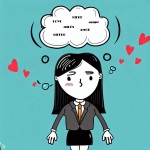How to forgive yourself as you do with others
We forgive others quickly for causing us distress and betrayal, but we forget to offer ourselves that same patience and understanding....
Table of Contents
Follow Patricia Alegsa on Pinterest!
In the complex fabric of human relationships, the ability to forgive stands out as one of the noblest and most liberating qualities we can cultivate.
Often, we find ourselves in situations where, almost instinctively, we extend our understanding and forgiveness towards others, recognizing their humanity and the inherent imperfections in each of us.
However, interestingly, when it comes to directing that same compassion towards ourselves, we face a much greater challenge.
Self-compassion and self-forgiveness seem to be skills that, although essential for our emotional and psychological well-being, often elude us or, worse yet, are completely ignored.
Join me on this journey of self-discovery and healing, where we will explore together how to forgive ourselves with the same patience, understanding, and unconditional love that we so generously offer to others. This act of kindness towards oneself can be the first step towards a more fulfilling, balanced, and happy life.
You deserve to be forgiven
Personal reminder: You deserve to be forgiven. Repeat this message as many times as you need, because it is absolutely true.
We often forgive others when they hurt us or let us down, but we frequently forget to offer ourselves that same understanding and patience.
It is common to allow mistakes in others and see them as opportunities for growth, while we are relentless with ourselves, demanding perfection at every step.
But I want to remind you that it is time to let go of that demand for perfection; it has no place on your path to well-being.
Not only do you deserve forgiveness from those around you but also self-forgiveness.
You have the right to forgive yourself for those nights filled with regrettable messages or encounters you would rather forget.
For senseless arguments with those you care about.
For those moments where alcohol was more of an enemy than a friend, harming yourself and possibly others.
For missed job opportunities or important work lost due to poor decisions.
For holding onto expired relationships out of fear of loneliness or rejection of necessary change.
For the times when you undervalued those around you or lied unnecessarily.
All of these actions deserve forgiveness because they are part of being human.
We are fallible creatures, prone to error like any other living being.
We have been taught since childhood that making mistakes is part of learning; only then do we improve our skills and knowledge to avoid falling into the same pitfalls again.
Hence the importance of freeing ourselves from the myth of perfection and integrating our humanity as something natural and necessary for our personal growth.
If you have caused harm at any point, the right thing to do is apologize and strive to improve day by day.
Nevertheless, it is also vital to offer yourself forgiveness for those past slip-ups.
Perhaps some may choose not to grant you their absolution, but remember: the crucial aspect here is you giving yourself permission to move towards who you truly want to become.
We can all make poor decisions under adverse circumstances; yet we deserve understanding and self-forgiveness.
In summary: make mistakes, apologize sincerely both to yourself and others when necessary, learn from the process, and keep moving forward, constantly improving.
The Art of Forgiving Yourself
Allow me to share a story that illuminates the path to self-forgiveness. During a motivational talk, a participant, whom we'll call Carlos, shared his personal struggle with guilt and how it was holding him back in life.
Carlos's story is a powerful lesson on the importance of forgiving ourselves with the same compassion we offer to others.
Carlos had made mistakes in his youth that negatively impacted those close to him. Despite his efforts to make amends, the burden of guilt continued to haunt him day after day. He witnessed others overcoming their faults and being forgiven, but he couldn't grant himself that same forgiveness.
In our sessions, we worked together to unravel the layers of self-judgment and shame that Carlos had accumulated over the years. I asked him to recall times when he had been able to forgive others; we wanted to understand how he felt when releasing resentment and accepting human imperfections.
The key to change for Carlos was learning to see his own mistakes in a different light. Instead of punishing himself endlessly for them, he began to view them as opportunities for learning and personal growth.
Carlos had made mistakes in his youth that negatively impacted those close to him. Despite his efforts to make amends, the burden of guilt continued to haunt him day after day. He witnessed others overcoming their faults and being forgiven, but he couldn't grant himself that same forgiveness.
In our sessions, we worked together to unravel the layers of self-judgment and shame that Carlos had accumulated over the years. I asked him to recall times when he had been able to forgive others; we wanted to understand how he felt when releasing resentment and accepting human imperfections.
The key to change for Carlos was learning to see his own mistakes in a different light. Instead of punishing himself endlessly for them, he began to view them as opportunities for learning and personal growth.
I explained: "Forgiving yourself doesn't mean forgetting what happened or downplaying it; it means freeing yourself from unnecessary weight so you can move forward."
I proposed a simple yet profound exercise: writing forgiveness letters to himself from a compassionate perspective. Initially, it felt strange and uncomfortable to him, but with each word, he began to feel the weight of guilt lifting.
Ultimately, Carlos learned something fundamental: forgiving oneself is not a selfish or indulgent act; it's a necessary step towards healing and emotional well-being. This transformation not only improved his relationship with himself but also with those around him.
Carlos's story teaches us that we all deserve compassion, especially from ourselves. If he could find the path to self-care and self-love after years of self-condemnation, you can do it too.
Remember: Forgiving yourself is giving yourself permission to be imperfect and move forward. It's recognizing that while you can't change the past, you have control over how you define yourself today.
If you're struggling with similar feelings, consider adopting practices like forgiveness letters or seek professional support to guide you on your journey to internal forgiveness. The first step is always choosing to look at yourself with kindness and understanding.
I proposed a simple yet profound exercise: writing forgiveness letters to himself from a compassionate perspective. Initially, it felt strange and uncomfortable to him, but with each word, he began to feel the weight of guilt lifting.
Ultimately, Carlos learned something fundamental: forgiving oneself is not a selfish or indulgent act; it's a necessary step towards healing and emotional well-being. This transformation not only improved his relationship with himself but also with those around him.
Carlos's story teaches us that we all deserve compassion, especially from ourselves. If he could find the path to self-care and self-love after years of self-condemnation, you can do it too.
Remember: Forgiving yourself is giving yourself permission to be imperfect and move forward. It's recognizing that while you can't change the past, you have control over how you define yourself today.
If you're struggling with similar feelings, consider adopting practices like forgiveness letters or seek professional support to guide you on your journey to internal forgiveness. The first step is always choosing to look at yourself with kindness and understanding.
Subscribe to the free weekly horoscope
Aquarius Aries Cancer Capricorn Gemini Leo Libra Pisces Sagittarius Scorpio Taurus Virgo
-
 Here's how you're secretly self-sabotaging your own success
Here's how you're secretly self-sabotaging your own success
Are you destined to fail, are you on the wrong track, should you give up and start over with something completely new and different? -
 How to have a healthy relationship with each zodiac sign
How to have a healthy relationship with each zodiac sign
Want to know if your love relationship is healthy? This is what your relationship should look like depending on the zodiac sign you are dating. -
 Transform Your Mind: 10 Tricks for Emotional Well-being
Transform Your Mind: 10 Tricks for Emotional Well-being
10 easy tricks for a healthy mind this year! Adopt one and feel the difference in your emotional well-being and anxiety control. -
 8 effective ways to resolve conflicts and tensions at work
8 effective ways to resolve conflicts and tensions at work
Discover powerful strategies to resolve interpersonal conflicts at work and with people close to you, learn how to manage difficult situations effectively and improve your relationships! -
 Avoid these love mistakes according to each zodiac sign
Avoid these love mistakes according to each zodiac sign
Discover the most common mistakes your zodiac sign makes in love, don't let them affect your relationship, learn how to avoid them right now!
I am Patricia Alegsa
I have been writing horoscope and self-help articles professionally for over 20 years.
Subscribe to the free weekly horoscope
Receive weekly in your email the horoscope and our new articles on love, family, work, dreams and more news. We do NOT send spam.
Astral and numerological analysis
-
 Discover your future, secret personality traits and how to improve in love, business and life in general
Discover your future, secret personality traits and how to improve in love, business and life in general
-
 Online Dream Interpreter: with artificial intelligence
Do you want to know what a dream you had means? Discover the power of understanding your dreams with our advanced online dream interpreter using artificial intelligence that responds to you in seconds.
Online Dream Interpreter: with artificial intelligence
Do you want to know what a dream you had means? Discover the power of understanding your dreams with our advanced online dream interpreter using artificial intelligence that responds to you in seconds.
-
 Your main weakness according to your zodiac sign
Your main weakness according to your zodiac sign
Discover your weakness according to your zodiac sign - read more to find out your Achilles' heel! -
 Keys to rebuild your life after a deep crisis
Keys to rebuild your life after a deep crisis
Discover how to restore your life and find inner peace after a crisis with our self-help article. Start your journey towards recovery now! -
 Why can't you follow a conversation? Regain your attention!
Why can't you follow a conversation? Regain your attention!
Discover why we lose attention in conversations and how multitasking and notifications affect our concentration. Regain your focus! -
 Find the perfect words of encouragement according to your zodiac sign
Find the perfect words of encouragement according to your zodiac sign
Discover the words you need according to your zodiac sign, take advantage of the power of the stars in your life! -
 Discover how to achieve daily joy
Discover how to achieve daily joy
Discover how to achieve happiness on World Joy Day. According to Arthur C. Brooks, it's a daily effort. Start today! -
 Avoid Ruining Your Relationships: 5 Common Mistakes
Avoid Ruining Your Relationships: 5 Common Mistakes
Discover how certain traits and toxic behaviors can infiltrate your being and destroy your relationships without warning. Avoid them in time! -
 How to unblock yourself and find your way: effective tips
How to unblock yourself and find your way: effective tips
Discover a key piece of advice to unblock your path and find direction when you feel lost. Transform your life! -
 What does it mean to dream of an anchor?
What does it mean to dream of an anchor?
Discover the meaning of dreaming of an anchor in this article. Get tips on how to make decisions and feel empowered in your life - don't miss it! -
 The lemon, the fruit with the least sugar that lowers blood pressure
The lemon, the fruit with the least sugar that lowers blood pressure
Discover the fruit with the least sugar that can help reduce blood pressure and control glucose. Ideal for diabetics and those who want to prevent it. -
 How these celebrities would look like if they were alive today
How these celebrities would look like if they were alive today
Find out what Elvis Presley, Freddie Mercury and other cultural icons would look like if they were alive today thanks to Midjourney's AI. Incredible! -
 The real stalker from the successful Netflix series gave an interview
The real stalker from the successful Netflix series gave an interview
The stalker in real life, named Martha in the successful Netflix series, gave an interview to Piers Morgan that is generating worldwide anticipation -
 What does it mean to dream of a thief?
What does it mean to dream of a thief?
Discover the hidden meaning behind dreams of thieves. Do you feel vulnerable or threatened? Is there something you need to protect? Find answers today. -
 Boost Your Mind! 13 Scientific Tricks to Improve Your Focus
Boost Your Mind! 13 Scientific Tricks to Improve Your Focus
Discover 13 scientific ways to boost your mind! Better concentration and agility: sleep well, stay hydrated, and create a noise-free space.